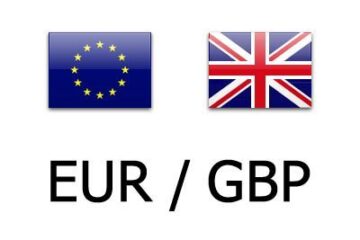It’s going to take a lot more than a spoonful of sugar to make this medicine go down.
Fans of the beloved classic Disney movie “Mary Poppins” might smile in recognition at the title of one of the songs from the film — assuming they haven’t been too busy weeping over their portfolios.
💵💰Don’t miss the move: Subscribe to TheStreet’s free daily newsletter 💰
Stocks have been deep-fried since President Donald Trump announced his massive tariff plan on April 2 and more recently doubled down on it.
Trump defended the sweeping tariffs on imports, which sent shockwaves through global markets, saying “sometimes you have to take medicine to fix something,” according to BBC News.
Speaking to reporters aboard Air Force One, he said jobs and investment would return to the U.S. to make it “wealthy like never before.”
Markets indeed are going to need some strong medicine to cure this bout of indigestion.
Stocks tumbled last week, following Trump’s announcement, and shares were zigzagging on April 7. The major indexes largely recouped from deep losses, and the Nasdaq Composite actually ticked up 0.1%.
Restaurant stocks have not been spared this distasteful diet and industry representatives analysts have sounded the alarm.
Pizza Hut is one of the companies owned by Yum Brands. (Photo by Michael Brochstein/SOPA Images/LightRocket via Getty Images)
Industry experts warn of tariff impact
Michelle Korsmo, chief executive of the National Restaurant Association, warned that “applying new tariffs at this scale will create change and disruption that restaurant operators will have to navigate to keep their restaurants open.
“The biggest concerns for restaurant operators — from community restaurants to national brands — are that tariffs will hike food and packaging costs and add uncertainty to managing availability, while pushing up prices for consumers,” she added.
More Restaurants
Bankrupt restaurant chain offers new deal, stiff drinkIconic American restaurant chain closing dozens of locationsNotorious restaurant chain launches late-night delivery
Korsmo says restaurant operators know consumers are very sensitive to costs. In the past five years eateries have kept menu price increases to 30%, while their food costs have gone up 40%, she says.
The restaurant industry’s dependence on imported goods leaves it vulnerable to the new tariffs, the law firm Harris Sliwoski said in April 7 report.
“Restaurants across the U.S. rely on essential imports like food products, packaging materials, furniture, fixtures, and equipment,” the firm said. “Even restaurants that primarily rely on local ingredients will likely see costs rise as increased demand for domestic goods drives prices higher.”
Harris Sliwoski noted that a primary concern is the potential for overall inflation.
As tariffs drive up the prices of a wide range of imported goods, the firm said, businesses across various sectors will likely pass these increased costs on to consumers.
“If inflation continues to rise, discretionary spending — particularly on dining out and travel — will likely decrease,” the report said.. “Restaurants and hotels, which are heavily dependent on consumer spending, are especially vulnerable to these economic shifts.”
In addition, the firm warned that retaliatory tariffs imposed by other countries could significantly harm international tourism to the U.S. and further strain restaurant and hotel stocks.
Analyst: Chances of slowdown rising
Investment firms have also expressed concerned about the impact of the tariffs on the restaurant sector.
“We view the direct cost impact of tariffs on restaurants as manageable, with a focus on select commodity costs, but see the bigger risk as incremental pressure on consumer spending and industry demand,” UBS analyst Dennis Geiger wrote in a note to clients, according to CNBC.
Related: Starbucks’ pricing plan, profitability could be impacted by tariffs
Yum Brands (YUM) is one of the restaurant companies that has been feeling the impact of the announced tariffs.
Based in Louisville, Ky., Yum is one of the world’s largest fast food companies, owning iconic brands such as KFC, Taco Bell, Pizza Hut and the Habit Burger Grill.
The company’s stock has fallen 8.8% in the past four trading days but is up 6.6% from a year ago.
Baird analyst David Tarantino trimmed the investment firm’s price target on Yum Brands to $174 from $176 while affirming an outperform rating on the shares.
With the probabilities of an economic slowdown seemingly rising after the “shock” of last week’s tariff announcement, Tarantino lowered estimates and price targets for the restaurants.
The analyst said he still believed exposure to restaurants remains appropriate, but he is “dialing up” a preference for franchisors and reiterates outperform ratings on the businesses he thinks would be positioned to perform reasonably well in a downturn.
Tarantino said he moved to the sidelines on Portillo’s (PTLO) and Starbucks (SBUX) .
On April 3, Piper Sandler analyst Brian Mullan raised the firm’s price target on Yum Brands to $150 from $140 and maintained a neutral rating on the shares.
The firm’s 2025 and 2026 adjusted earnings-per-share and Ebitda estimates are also revised higher, predominantly as a result of an increase to its Taco Bell same-store sales estimates.
Piper also increased its international same-store-sales estimates at KFC International and Pizza Hut International.
Related: Veteran fund manager who forecast S&P 500 crash unveils surprising update


